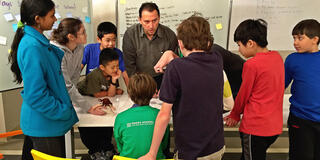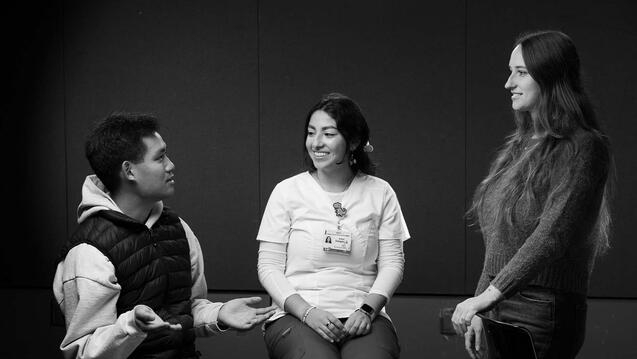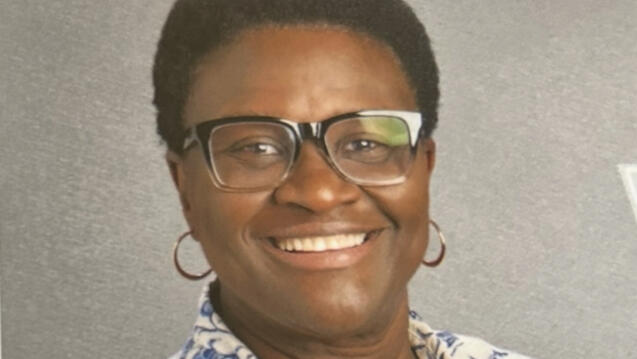'Joyous Artform'
Peter, an eighth-grader at San Francisco's Proof School, holds an 8.5 by 11 piece of paper with a 4-inch solid square printed in the middle. The teacher gives directions. He can fold the paper as many times he likes. He can make one straight cut into the folds. If he solves the problem correctly, the square in the middle will be cleanly cut from the page.
This is the one-cut challenge, a multi-step analytical geometry exercise known to most Proof students. The challenge gets harder with more complex shapes, a star or a letter from the alphabet for example. Peter says challenges like these are the reason he chose Proof.
"Teachers give us challenge problems with tricky concepts and when you solve it, it’s a eureka moment," Peter says.
Proof, a private middle and high school for Bay Area kids who love math, strives to revitalize math education, says Paul Zeitz, USF professor of mathematics and Proof co-founder. The school is founded on the idea that "math is a joyous art form," he says. "Imagine you’re being told to lift weights repeatedly for exercise. That’s how math is taught in most schools. Proof teaches exercise by hiking and playing sports."
Focus on girls
In addition to making math fun, Proof also strives to make math more gender inclusive. That's why half of Proof's incoming class of sixth graders are girls, rather than the three- or four-to-one, boy-girl ratio, he often sees in math study groups, Zeitz says.
Zeitz was inspired to create Proof while leading a math circle in San Francisco, an Eastern European-style math study group. Watching thrilled kids discuss math, a parent wondered aloud why school couldn't be more like that. Two years later, in 2015, Proof was born. While admittedly math focused, Proof is a comprehensive school with classes in literature, history, writing, arts and crafts, and science.
The same enthusiasm for math makes its way into Zeitz's USF curriculum in the form of Mathematical Circles, a service-learning class. USFers who take the course learn "escape-the-textbook" problem solving and earn required service credits by working with younger students in math groups around the city.
Math serves community
Math major Lindsay MacGarva ’11, MA '13 remembers Mathematical Circles fondly. And she draws on what she learned almost daily, as a math teacher at Convent & Stuart Hall High School in San Francisco.
"For example, Professor Zeitz always mentioned that there was a ‘crux’ to a problem — that is, one word or trick that would make a whole problem make sense," MacGarva says. "I try to think of the 'crux' of problems from the student perspective when I teach, because that’s what makes the new concept click for my students. I also keep a drawer of other problems from Professor Zeitz’s class for students to do when they finish their work early or in case I'm absent as a backup lesson,” she says.
(Students’ last names are omitted for privacy.)



